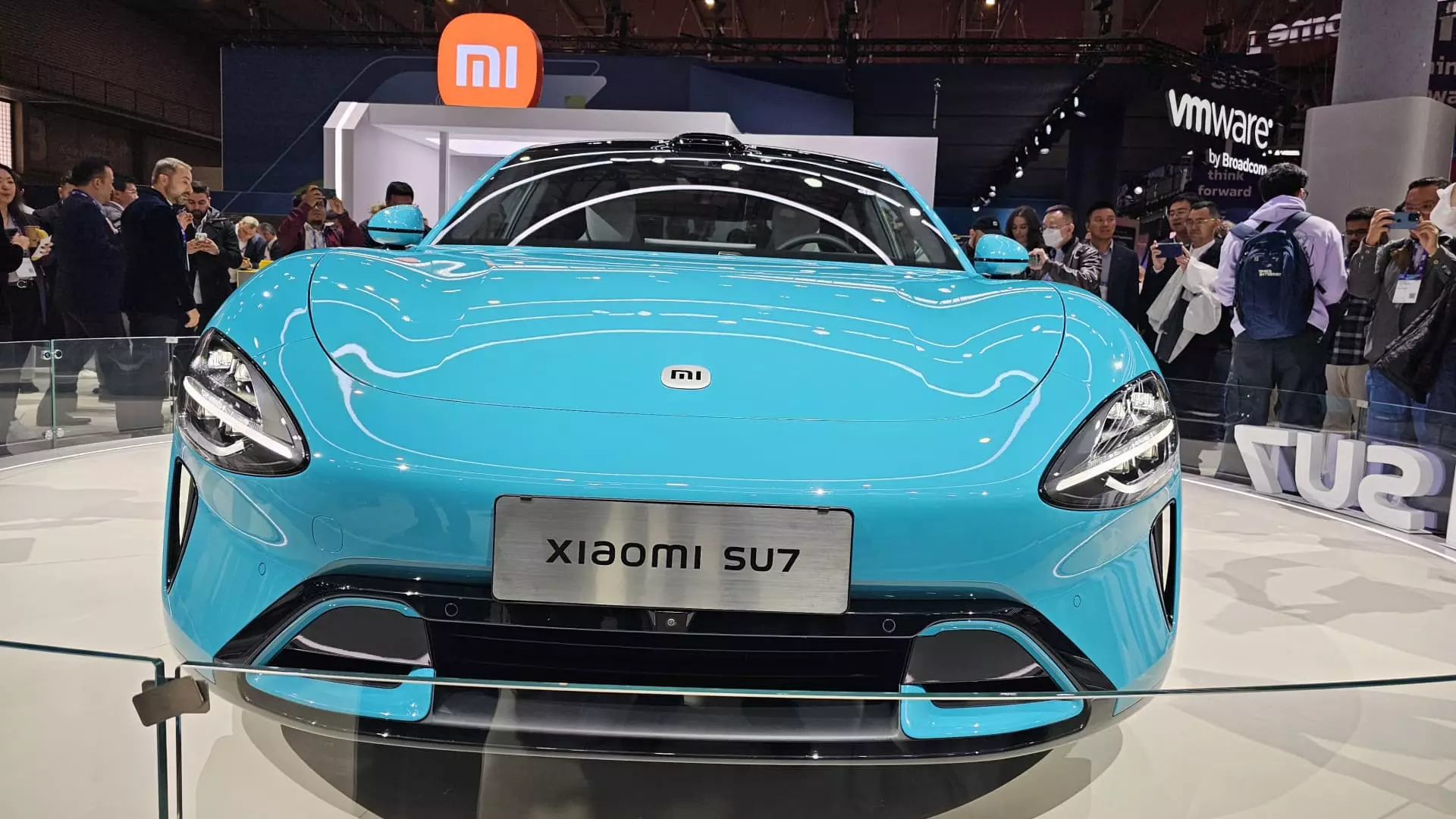Xiaomi, the Chinese smartphone company, has made a significant impact in the electric vehicle market with its new electric SU7 sedan. The company has reported receiving over 70,000 orders for the vehicle as of April 20, which is close to its original full-year delivery target. CEO Lei Jun shared with investors that Xiaomi now aims to deliver 100,000 units of the electric vehicle by the end of the year. The impressive sales numbers have put Xiaomi on track to reach its break-even point sooner than anticipated.
The success of Xiaomi’s electric vehicle can be partly attributed to its competitive pricing strategy. The SU7 sedan was released with a price tag that is approximately $4,000 lower than Tesla’s Model 3, making it a more affordable option for consumers. Despite undercutting Tesla on price, Xiaomi has managed to attract a significant number of buyers, signaling a strong demand for electric vehicles in the Chinese market.
Analysts at Citi have been closely monitoring Xiaomi’s foray into the electric vehicle sector. They noted that reaching an annual sales volume of 300,000 to 400,000 units would enable Xiaomi to break-even in the auto business. The analysts revised their gross profit margin forecast for Xiaomi’s autos segment to 6% for the current year, a significant improvement from the previously expected 10% loss. This positive outlook led to a 25% increase in the earnings per share forecast for Xiaomi. The company is now projected to ship 100,000 cars in 2021, followed by 200,000 units in 2022 and 280,000 units in 2026.
In comparison to other electric vehicle manufacturers in China, Xiaomi’s performance has been impressive. Tesla China sold over 600,000 cars last year, while Li Auto and Nio sold 376,000 and 160,000 cars respectively. Xiaomi’s ability to quickly gain traction in the competitive market is a testament to its strong brand presence and innovative approach to product development. Looking ahead, Xiaomi plans to launch an electric SUV in the second half of 2025, further expanding its portfolio of electric vehicles.
Despite its rapid success in the electric vehicle market, Xiaomi remains focused on the domestic market for the next three years. CEO Lei Jun emphasized the company’s commitment to strengthening its position in China before considering global expansion. Xiaomi’s existing global presence and loyal customer base provide a solid foundation for future international ventures. The company’s strategic focus on building production capacity and reducing costs in collaboration with suppliers highlights its long-term vision to establish itself as a leading automaker globally.

